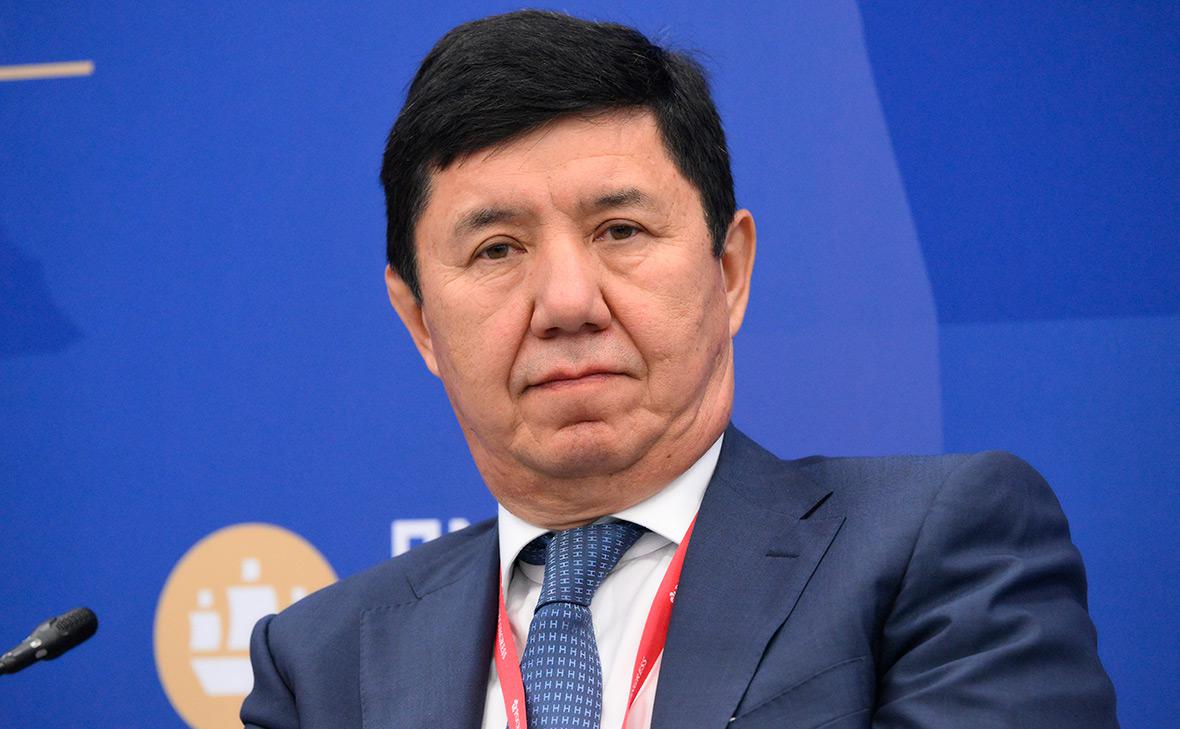It is important to include top companies from Russia's partner countries in the SPIEF programme
Kyrgyzstan has proposed that Russia form the SPIEF agenda based on the representation of national businesses from EAEU member countries. Temir Sariev, head of the Chamber of Commerce and Industry of the Kyrgyz Republic, made this statement in an interview with Business Eurasia on the sidelines of the St. Petersburg International Economic Forum 2025.
— Hello, Temir Argembaevich! In your opinion, how does the 28th SPIEF differ from previous ones? The topics? The composition of participants?
— Hello. The number of participants is growing, and even with certain sanctions imposed by Western countries, interest in the SPIEF is very high, with a large number of businesspeople in attendance. The second thing is the global south, the presence of delegates from this part of the world. They now occupy a central place at this major forum, which is being held in St. Petersburg.
— Why is the 2025 forum important for the business community of the Eurasian Economic Union?
— At such forums, there is a kind of synchronisation of watches, discussion of various issues, you can hear about trends, and, of course, you can find future partners and sign large contracts. As for the Eurasian Economic Union, we understand that the process is constantly evolving. Kyrgyzstan and Russia's trade turnover within the EAEU is increasing every year. There is considerable interest in business for Russian investment in the Kyrgyz economy and integration within the Eurasian Economic Union. So, we only receive positive feedback here, and we can convey our state's policy, our economic opportunities, and talk about major projects that are being implemented in the Kyrgyz Republic.
— Following the activation of the free trade agreement with Iran, Iranian businesses are actively interested in business in EU countries and in Kyrgyzstan as well. How will the armed conflict currently taking place in the Middle East affect bilateral economic projects?
— On the one hand, any conflict has a negative impact on the opportunities for business structures where businesses need to establish relationships. Yes, Iran is certainly interesting. Especially since a large national project is being implemented as part of the international ‘One Belt, One Road’ project. This is the construction of the China-Kyrgyzstan-Uzbekistan railway, with a further extension through Turkmenistan and access to the Persian Gulf and beyond to Europe. This is a very large project with a long route, and I hope that after its implementation, mutual trade with Iran will be much easier and there will be an opportunity to increase trade turnover. As we know, Iran has enormous potential in the field of energy resources. In the future, they will be in high demand in large volumes, both within Kyrgyzstan and in the region. The second is the free trade zone within the framework of the Agreement between the Eurasian Economic Union and Iran, which opens up new opportunities. And today we feel that the flow of goods through Iran may increase, because this country has a well-developed machine-building industry, including heavy machinery, chemical production and oil refining. All of this is available in fairly good volumes. And most importantly, their prices are much more competitive than in other markets. I think businesses will take advantage of this to establish good relations.
— Explain how the conflict could affect project implementation timelines and business in general. How could the Central Asian region suffer from this in economic terms?
— Iran is under Western sanctions, which already complicates access to its market. As I said, any war, any conflict has both negative and positive sides. When the SVO began, Russia suffered on the one hand, but on the other hand, it turned to its enormous internal capabilities to establish import substitution and develop its own production. So, here we need to skilfully understand what is harmful and when, and when it is helpful. As they say, there would be no happiness without misfortune.
— Kyrgyzstan is traditionally represented at the St. Petersburg Forum by officials and functionaries. Very few businesses are represented, while in Russia it is the opposite — mainly businesses, and we are not talking about meetings on the sidelines of the forum. Participation in the presidium of the sessions reflects the level of the state's perception of its national business. How can the Kyrgyz authorities be encouraged to form and provide delegations from the business community to participate in such forums?
— This year, as far as I know, more than ten of our businesspeople have arrived and are already participating in sessions, listening and showing interest. I think that within the Eurasian Union, a preferential rate should be introduced for members, because the price of participation is quite high. On the other hand, the organisers could invite several top companies to participate in the sessions, because when the agenda is being formed, when the panel sessions are being formed, this is agreed in advance and they need to be invited. There should be, as they say, a two-way street here. It should not only be our desire, but the organisers should also think about it, because the Eurasian Economic Union is a very large organisation and plays a key role in our relations. Within this framework, some kind of separate, special status for members could be considered.
— Thank you.
Own information.
Business Eurasia
